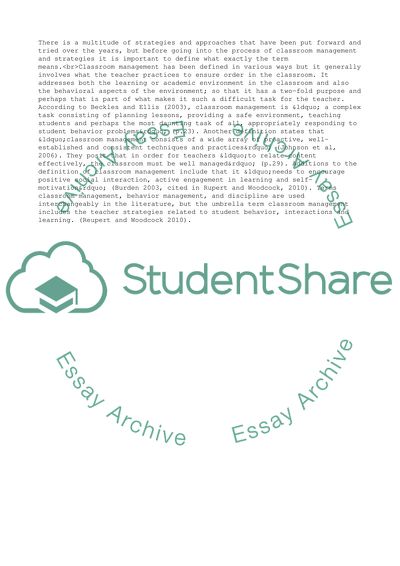Cite this document
(Effective Classroom Management Research Paper Example | Topics and Well Written Essays - 1500 words - 1, n.d.)
Effective Classroom Management Research Paper Example | Topics and Well Written Essays - 1500 words - 1. Retrieved from https://studentshare.org/management/1752327-effective-classroom-management
Effective Classroom Management Research Paper Example | Topics and Well Written Essays - 1500 words - 1. Retrieved from https://studentshare.org/management/1752327-effective-classroom-management
(Effective Classroom Management Research Paper Example | Topics and Well Written Essays - 1500 Words - 1)
Effective Classroom Management Research Paper Example | Topics and Well Written Essays - 1500 Words - 1. https://studentshare.org/management/1752327-effective-classroom-management.
Effective Classroom Management Research Paper Example | Topics and Well Written Essays - 1500 Words - 1. https://studentshare.org/management/1752327-effective-classroom-management.
“Effective Classroom Management Research Paper Example | Topics and Well Written Essays - 1500 Words - 1”, n.d. https://studentshare.org/management/1752327-effective-classroom-management.


